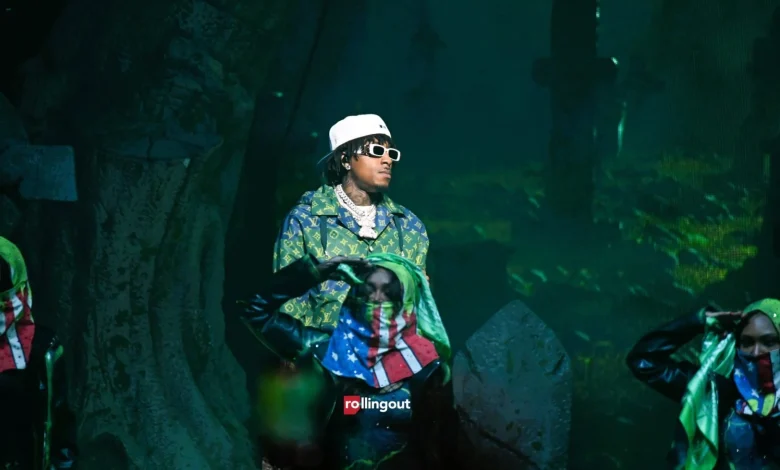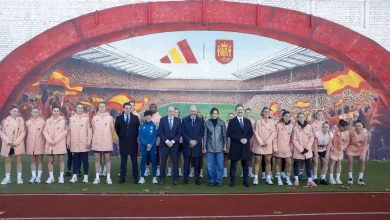NBA YoungBoy’s Oklahoma show ignites firestorm over race

Jail’s staffing surge for rapper’s concert triggers accusations of bias and sparks debate on security protocols
A security decision at an Oklahoma County detention facility has erupted into controversy, with allegations of racial profiling overshadowing what should have been a routine tour stop. The Oklahoma County Jail’s decision to boost personnel ahead of NBA YoungBoy’s November 1st performance at the Paycom Center has sparked heated debate about whether standard precautions crossed into discriminatory targeting of the 25-year-old rapper, born Kentrell Gaulden, and his audience.
Rev. Derrick Scobey, a jail trustee, characterized the staffing increase as blatant racism, forcing uncomfortable conversations about implicit bias, public safety protocols and how hip-hop culture is treated by institutions.
A Rapper’s Troubled Past Meets Present Scrutiny
NBA YoungBoy’s legal troubles date back to 2016, yet he’s built one of rap’s most devoted followings. Between 2021 and 2024, he recorded multiple albums while under house arrest. His current MASA tour has faced venue cancellations and heightened security demands, but Oklahoma City’s response went further: a governmental institution ramping up resources based on assumptions about potential chaos.
The jail increased staffing specifically anticipating possible unrest, according to The Oklahoman. That language choice reveals the presumptions at play—not routine crowd management, but preparation for violence that never materialized.
Defending Decisions Amid Bias Claims
Tim Kimrey, the jail’s interim administrator, defended the move as data-driven, pointing to patterns at concerts featuring predominantly Black audiences nationwide. That terminology raised eyebrows among critics who noted such phrasing has long served as coded language for Black culture. Kimrey insisted the jail followed established public safety protocols, not targeting NBA YoungBoy specifically.
Yet Scobey exposed inconsistencies during trustee meetings. He successfully lobbied for comparable staffing at a Christian worship event, forcing administrators to confront whether risk assessments applied uniformly. Similar-sized events with white audiences weren’t triggering equivalent responses.
Lucy Albers, who handles public relations for the Paycom Center, revealed her team hadn’t requested additional jail staffing and learned about it after the fact. The venue’s security apparatus didn’t share the jail’s concerns. Even more telling, the Oklahoma City Police Department declined to alter its concert-day operations—the force with actual jurisdiction saw no cause for extraordinary measures.
Myles Davidson, a trustee and District Three County Commissioner, backed Kimrey’s approach, citing instances where NBA YoungBoy performances elsewhere were canceled over violence concerns. But that reasoning opens troubling questions: Should artists face indefinite penalties for crowd behavior they don’t control? Does this standard apply equally across genres? Country music festivals have seen violence, yet there’s no evidence of comparable preemptive staffing.
Hip-Hop Under Scrutiny
This controversy reflects persistent tensions in how hip-hop culture is policed. Rap concerts routinely face higher insurance costs, restrictive venue policies and greater law enforcement scrutiny than rock or pop shows. Artists like NBA YoungBoy, whose music reflects harsh realities of poverty and inequality, find themselves in a double bind. Their authenticity becomes justification for treating them as security threats.
Oklahoma City now faces consequential decisions. Will every hip-hop show trigger enhanced jail staffing? Will venues internalize that burden, effectively pricing out certain artists? Will promoters bypass markets they perceive as hostile? These questions extend beyond one concert—they touch fundamental issues of equity and institutional bias that resonate far beyond entertainment venues.
What the Silence Says
NBA YoungBoy completed his Oklahoma City performance without incident. No arrests. No violence. The jail’s additional staff watched a peaceful evening unfold, their presence ultimately unnecessary. That outcome should prompt reflection rather than vindication. Preparing for problems that don’t materialize suggests the preparation itself was misguided.





